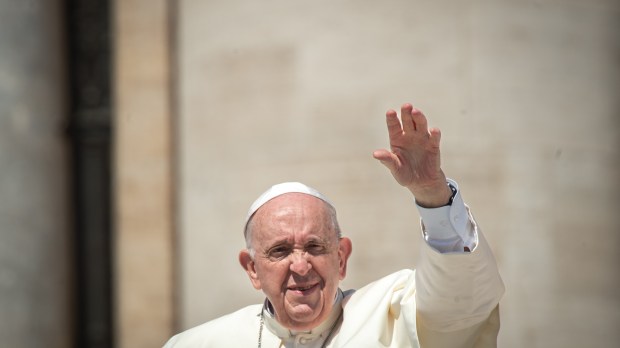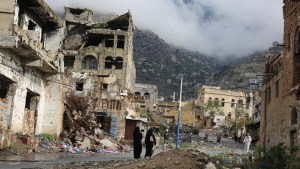Many conflicts in the world “are receiving little or no attention,” Pope Francis denounced as he received the ambassadors of Pakistan, the United Arab Emirates, Burundi and Qatar, who came to present their credentials to him on May 19, 2022, at the Vatican.
Some three months after the Russian invasion of Ukraine, the Pontiff noted to diplomats accredited to the Holy See – but not resident in Rome – that most Europeans believed prior to this that war in Europe “was a distant memory. We thought that children would one day ask their mothers: ‘What is war?’ But that is not what happened.”
Yet tragedy, the Pope noted, also brings out the best in humanity, as we also saw in the pandemic. The sometimes “atrocious” images of suffering and death have inspired solidarity, he said, praising those countries that are taking in refugees “without worrying about the costs.”
At the same time, the Pope continued:
it should not be forgotten that there are numerous other conflicts going on in the world that are receiving little or no attention, especially from the media. We are one human family and the degree of indignation expressed, humanitarian support offered, and sense of fraternity felt for those who are suffering must not be based on geography or self-interest. For “if every human being possesses an inalienable dignity, if all people are my brothers and sisters, and if the world belongs to everyone, then it matters little whether my neighbour was born in my country or elsewhere” (Fratelli Tutti, 125).
This applies not only to situations of war and violent conflict but also to other situations of injustice plaguing the human family: climate change, poverty, hunger, lack of clean drinking water and availability of respectable work and proper education, to name a few.
Calling for “a united response from the international community” to all injustices, the Pontiff emphasized the privileged role of ambassadors, encouraging them to “never lose hope” in their efforts to build a world where “disagreements are resolved by peaceful means.”
The four new ambassadors
Aamir Shouket, Pakistan’s ambassador to the Holy See, was born in 1969. A father of two, he joined his country’s Ministry of Foreign Affairs in 1994 and has worked at the embassy in Greece, Bangladesh, and the Netherlands. He has held several senior positions and has also worked at the Organization for the Prohibition of Chemical Weapons. The embassy of residence of the representative of Pakistan in the Vatican has been in Bern, Switzerland.
The new UAE ambassador, Omar Saif Saeed Ghobash, is 50 years old. A father of four, he studied mathematics in the United Kingdom before joining the UAE Ministry of Foreign Affairs. He was Ambassador to Russia for nine years (2008 – 2017), non-resident Ambassador to Ukraine for three years (2010 – 2013) and Ambassador to France for two years (2017 – 2018). Until 2021, he was Deputy Minister of Cultural Affairs. The embassy of residence of the representative of the United Arab Emirates to the Holy See has been in Madrid.
The Ambassador of Burundi to the Holy See, Appolonie Nibona, 53, is a mother of three children. After studying economics and management, she worked for 10 years at the Burundian Post Office, then at the Institut Supérieur de Gestion des Entreprises (ISGE), and at the Presidency. She has been ambassador to Germany since 2021 and will continue to reside there.
Mohammed bin Yousef bin Jassim Jabor Al-Thani, Ambassador of Qatar, is 52 years old. He has a degree in urban planning and has worked since 1994 in the diplomatic service of his country: at the Embassy of Qatar in Italy and in Lebanon. He has also worked for human rights. The residence of the Qatari ambassador to the Vatican has been in Paris.


